第46章 VIII (3)
Of course, Phoebe was far too sensible a girl to entertain this idea in any other way than as matter for a smile. Possibly, also, could the two personages have stood together before her eye, many points of difference would have been perceptible, and perhaps only a general resemblance. The long lapse of intervening years, in a climate so unlike that which had fostered the ancestral Englishman, must inevitably have wrought important changes in the physical system of his descendant. The Judge's volume of muscle could hardly be the same as the Colonel's; there was undoubtedly less beef in him. Though looked upon as a weighty man among his contemporaries in respect of animal substance, and as favored with a remarkable degree of fundamental development, well adapting him for the judicial bench, we conceive that the modern Judge Pyncheon, if weighed in the same balance with his ancestor, would have required at least an old-fashioned fifty-six to keep the scale in equilibrio. Then the Judge's face had lost the ruddy English hue that showed its warmth through all the duskiness of the Colonel's weather-beaten cheek, and had taken a sallow shade, the established complexion of his countrymen.
If we mistake not, moreover, a certain quality of nervousness had become more or less manifest, even in so solid a specimen of Puritan descent as the gentleman now under discussion.
As one of its effects, it bestowed on his countenance a quicker mobility than the old Englishman's had possessed, and keener vivacity, but at the expense of a sturdier something, on which these acute endowments seemed to act like dissolving acids.
This process, for aught we know, may belong to the great system of human progress, which, with every ascending footstep, as it diminishes the necessity for animal force, may be destined gradually to spiritualize us, by refining away our grosser attributes of body. If so, Judge Pyncheon could endure a century or two more of such refinement as well as most other men.
The similarity, intellectual and moral, between the Judge and his ancestor appears to have been at least as strong as the resemblance of mien and feature would afford reason to anticipate.
In old Colonel Pyncheon's funeral discourse the clergyman absolutely canonized his deceased parishioner, and opening, as it were, a vista through the roof of the church, and thence through the firmament above, showed him seated, harp in hand, among the crowned choristers of the spiritual world. On his tombstone, too, the record is highly eulogistic; nor does history, so far as he holds a place upon its page, assail the consistency and uprightness of his character. So also, as regards the Judge Pyncheon of to-day, neither clergyman, nor legal critic, nor inscriber of tombstones, nor historian of general or local politics, would venture a word against this eminent person's sincerity as a Christian, or respectability as a man, or integrity as a judge, or courage and faithfulness as the often-tried representative of his political party. But, besides these cold, formal, and empty words of the chisel that inscribes, the voice that speaks, and the pen that writes, for the public eye and for distant time,--and which inevitably lose much of their truth and freedom by the fatal consciousness of so doing,--there were traditions about the ancestor, and private diurnal gossip about the Judge, remarkably accordant in their testimony.
It is often instructive to take the woman's, the private and domestic, view of a public man; nor can anything be more curious than the vast discrepancy between portraits intended for engraving and the pencil-sketches that pass from hand to hand behind the original's back.
For example: tradition affirmed that the Puritan had been greedy of wealth; the Judge, too, with all the show of liberal expenditure, was said to be as close-fisted as if his gripe were of iron. The ancestor had clothed himself in a grim assumption of kindliness, a rough heartiness of word and manner, which most people took to be the genuine warmth of nature, making its way through the thick and inflexible hide of a manly character. His descendant, in compliance with the requirements of a nicer age, had etherealized this rude benevolence into that broad benignity of smile wherewith he shone like a noonday sun along the streets, or glowed like a household fire in the drawing-rooms of his private acquaintance. The Puritan --if not belied by some singular stories, murmured, even at this day, under the narrator's breath--had fallen into certain transgressions to which men of his great animal development, whatever their faith or principles, must continue liable, until they put off impurity, along with the gross earthly substance that involves it. We must not stain our page with any contemporary scandal, to a similar purport, that may have been whispered against the Judge. The Puritan, again, an autocrat in his own household, had worn out three wives, and, merely by the remorseless weight and hardness of his character in the conjugal relation, had sent them, one after another, broken-hearted, to their graves.
Here the parallel, in some sort, fails. The Judge had wedded but a single wife, and lost her in the third or fourth year of their marriage. There was a fable, however,--for such we choose to consider it, though, not impossibly, typical of Judge Pyncheon's marital deportment,--that the lady got her death-blow in the honeymoon, and never smiled again, because her husband compelled her to serve him with coffee every morning at his bedside, in token of fealty to her liege-lord and master.